If you’ve ever bought a car before, you’ll be aware of the wide variety of cars to choose from. And while electric cars at present don’t have quite the same number of options, there’s still plenty of choice (and that’s growing every year). In this guide, we provide some handy tips that you can refer to when comparing electric vehicles on your shortlist.
Comparing different EV options
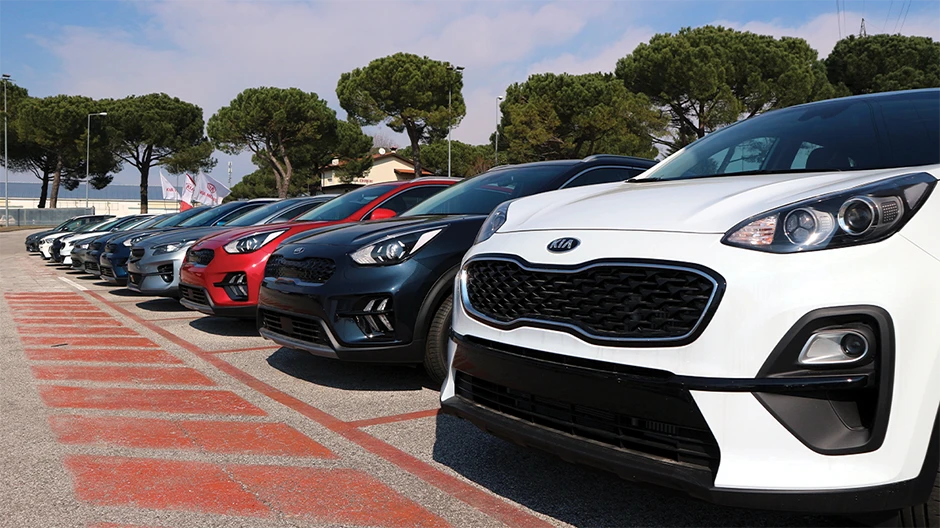
What size vehicle do you need?
EVs at one point were represented by small hatchback shapes, and there’s still plenty of these models available. But we know that New Zealand motorists have differing needs from their vehicles, from carrying tools to taking long road trips. Size means cabin size, boot space, height and bumper to bumper length. Getting clear on the size of car you want helps you to buy something that’s fit for purpose across all your needs.
And don’t forget to find out if a potential EV will fit in your garage or home parking spot!
What is your daily use case?
There’s absolutely nothing wrong with liking a car simply because of how it looks or drives. But with an investment of this size, it’s not enough of a reason alone to make your purchase. Your driving habits and needs from a car on a day-to-day basis should weigh into your decisions. Think about things like:
- Are you travelling lots of short distances around your home each day?
- Do you need the vehicle for a commute into the city?
- Are you a tradie or rural contractor needing to carry or tow large loads?
- Will the vehicle need to go off road at any point, such as on the farm?
- How many passengers at any one time will the EV need to carry?
- Is the vehicle a primary or secondary car?
- Are you a regular long distance traveller?
Answers to these questions can start to build a bit of a must-have list which will really help you compare the choices. It can even save you money by avoiding vehicles that have expensive features that most of the time you’d never use.

Factor in those ‘occasionally’ scenarios
Daily use is the biggest one to think about, but we love our roadies in New Zealand. We also enjoy a trailer load of green waste, a DIY house move and the odd trip to the mountain. Don’t neglect to think about those occasions where you want to take a longer trip or might need to tow something across town. For some, hiring a separate vehicle might be sufficient, but for many others the versatility of a car that is comfortable and capable in these infrequent use cases is really worth it.
EVs vary widely in their range, towing capacity and their suitability for rough terrain. So, like your daily use cases, think about what you might want to do with your EV outside of the norm.
Comparing power of EVs with each other (and with traditional cars)
What should you be looking for when compiling your shortlist of EVs and their performance?
EV motors don’t have the limitations of ICE vehicles in terms of torque as the engine’s revs increase – you’ll get maximum torque straight away, off the mark. This means acceleration is often much better in an EV, compared with a petrol vehicle of a similar type (and even ‘sportier’ petrol vehicles in many cases). There’s a reason why you may’ve seen videos online with sensible-shaped Teslas beating high performance, fuel-based cars on the track!
You might find that EV specs talk more to the acceleration (0-100km) time. That’s because it’s often the most notable difference in performance compared to a regular car. However, top speed can often be lower to preserve range.
Range is a very common number for potential EV-buyers to put under the microscope, given how much it can impact the ownership experience. Make sure to check for this in your search. Note that while ranges of EVs are getting better, similar ICE cars will often have a longer ‘range’ on a full tank.
Range – rated vs. reality
While range is a valuable comparison metric, it’s not an accurate guide of how far you’ll drive on a full charge in most circumstances. The variety of inclines, load, conditions of the road, climate, use of accessories, battery age, tyres and driving behaviour make it near impossible to guarantee a specific range.
If you use range as a comparative indication rather than pinpoint accurate, you shouldn’t be disappointed. A test drive around your area and frequent routes is a valuable thing to do – especially if you take different EVs on the same drives and note the drop in battery %.
Range is a big topic to potential EV buyers and owners that a global standard has been developed, known as the ‘Worldwide Harmonised Light Vehicle Test Procedure’ or WLTP test which among other things, helps determine the range of EVs.
The WLTP aims to reflect realistic driving conditions, temperatures and distances and is used around the world to give consumers a better estimate of range capabilities.
Battery charging – how efficient is it?
All things battery charging related deserve to be key criteria for selecting one EV over another. As you shop around, look for information about each car’s maximum charging rates (both AC and DC fast charge) as some will be designed for quicker charges than others. But, speed to charge is just one element to think about. An EV with a larger battery will typically offer longer range (unless it’s used for increased hauling capability), so these may take longer to charge, but not need charging as frequently.
How an EV’s battery is managed can impact its efficiency long term as well. That means keeping the temperature optimal and controlling the flow of power into the battery to reduce degradation over time.
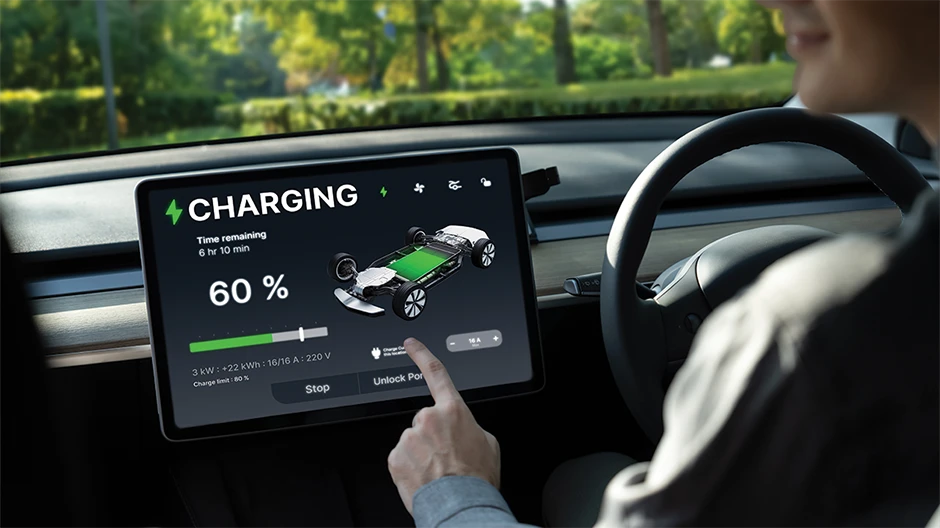
Battery warranty and lifespan
All batteries wear out at some stage, and EV batteries are no different. What is different is that electric vehicle batteries cost a significant amount to replace. Luckily, they’re designed to last many years. Each manufacturer will have their own guidelines and possibly warranty over their EV batteries' longevity.
This is a valuable piece of info to gather when you’re researching options – perceived savings at purchase could be offset by an earlier battery replacement.
Comparing cabin features of EVs
Shopping around for an electric car is much like any other vehicle when you’re comparing interior features – especially in the case of newer models. Here are some features that you should look for and compare between models:
- Infotainment - size, clarity and usability of the touchscreen and buttons. Many EVs come with touch screens which need to be responsive for easy, safe operation.
- Comfort and space - something that no software update will be able to help with post-purchase, having enough space in the cabin is a must.
- Noise and vibration - during your test drives, take note of how noisy or quiet the road sound is.
- Climate control - how easy and quick is it to achieve optimal temperature inside the cabin? With accompanying apps, some EVs can pre-condition the car to the right temperature before you jump in.
- Visibility - how easy is it to see around the vehicle, including rear view mirrors and through the back windscreen? Are there camera-assisted views through the dashboard display that help you reverse and park safely?
- Connections - charging your phone is a common feature of modern vehicles but different models have specific types including wireless, USB A and USB C.
Software features and updates
Software onboard your EV and accompanying mobile phone apps is something to do your research into when comparing EVs. Software plays a critical role in the EV ownership experience from energy management to driving experience, so it’s a good idea to check what features the EV provides as well as how often the software is updated. You can also do some online research within EV communities about specific models and owners’ experiences with manufacturer support.
Local dealer support
There’s an old adage: “buy the seller”. We think this wisdom applies to electric vehicles. While EV maintenance is typically less frequent than a traditional car, there’s still things that can go wrong, or even just information you want to know about your car. So as much as you compare different models of EV, do your homework on the seller, too.
All things EVs
Thinking of making the switch? We’ve got info on what they cost, why they’re great and heaps more to help you on your journey.
All articles
Owning an electric vehicle in New Zealand
An EV doesn’t just mean different technology, it brings with it different habits than those of a regular car.

Things to look out for with a used EV
In this guide we cover the main parts of a used EV to check – whether that’s at a used car dealer or in a private sale...

Electric Vehicles vs. Petrol or Diesel - Pros and Cons
Let’s talk about some common pros and cons that you might find with EV vs. ICE so you can make an informed decision on...
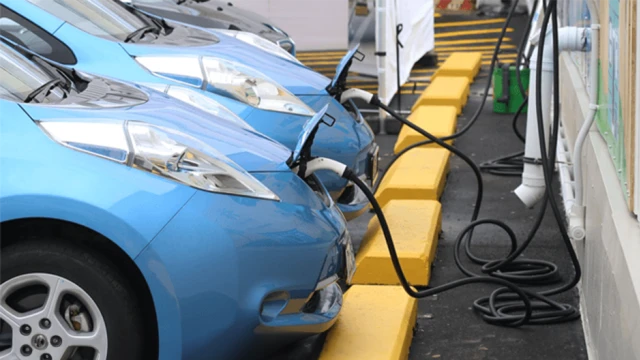
Useful information about EV charging at your business
Getting charging infrastructure for your business has many benefits. Here’s some important things to keep in mind.
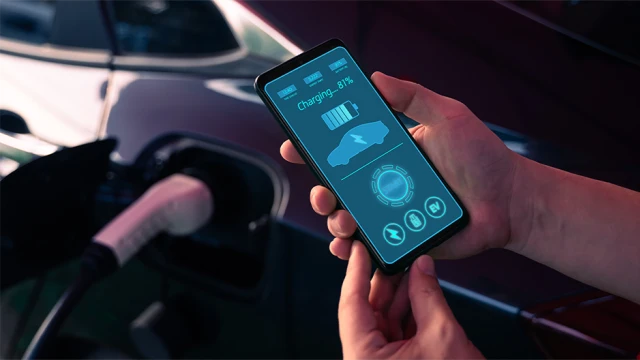
The guide to EV batteries
This guide will give you a head start when shopping around for an EV, or to simply understand your existing electric...

We’re levelling up the way we do transport
At Meridian, we’re committed to demonstrating our support of low emissions transport on the roads and in our waterways.
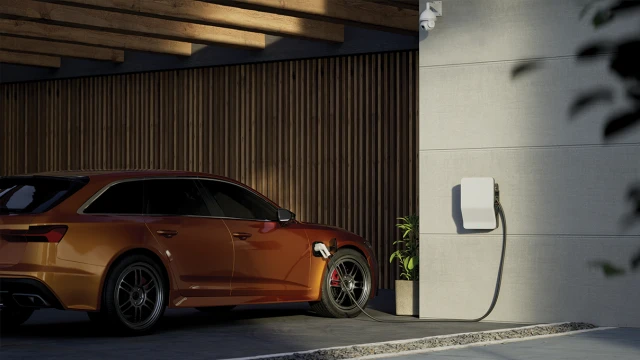
Are EVs worth it?
Many people are asking this question when shopping for a new vehicle. In this guide, we'll tackle whether you should...

Choosing an EV for a family
Any car purchase is a big deal, and it takes time to find the right model. Our guide below explores the family car...

How to integrate home solar and an EV
In this guide, we’ll help you get started in your planning to have solar and EV in the home.

Top considerations when buying an EV
Buying an electric vehicle (EV), especially for the first time, is an exciting process. In this guide we explore the...
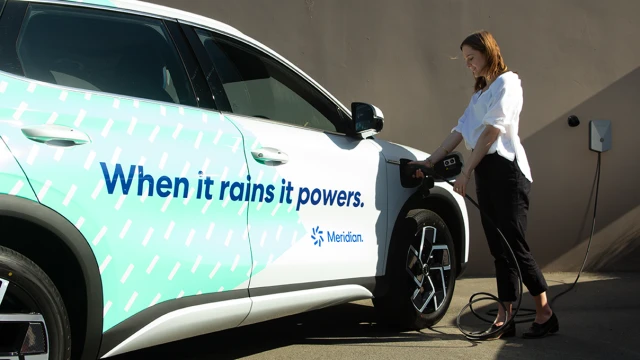
Considering an EV? The top three considerations for EV charging
When it comes to EV ownership, energy is often the last thing considered. Find out the top considerations for EV...
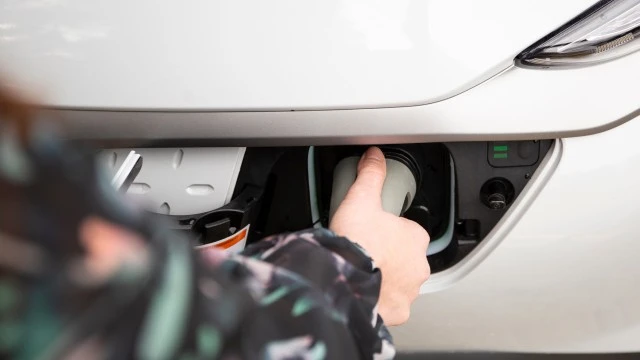
Charging EVs
Unlike petrol stations, chargers for your EV aren’t quite so common. Don't worry though, you’ve got options.
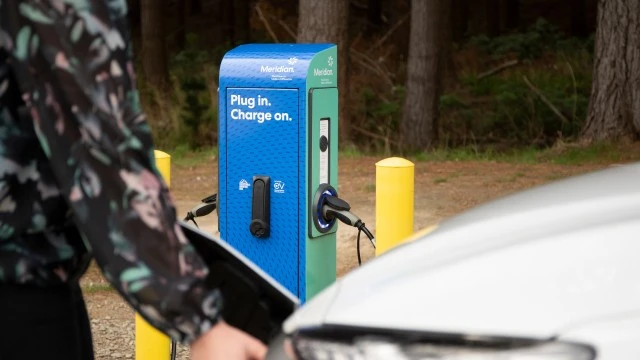
Plug vs pump – an electric car cost comparison
How much does it cost to buy an EV? And how much does it cost to charge?
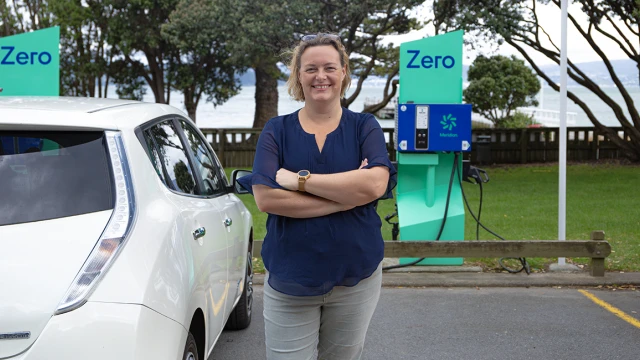
Is it worth buying a second-hand Nissan Leaf?
We chatted with Sophie about buying and owning a second-hand Nissan Leaf and how that’s working out for her family.
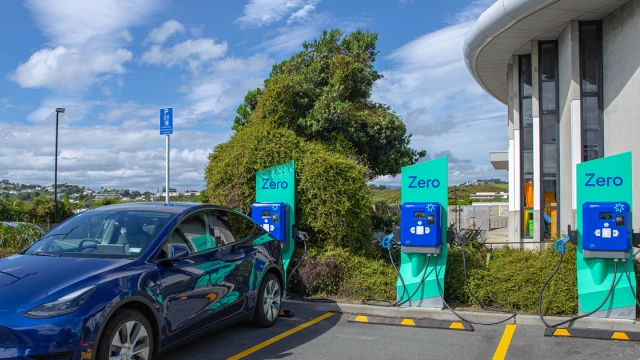
The top 5 unspoken rules of public EV charging
Don’t be that person… the one who bothers other drivers at public EV charging stations. Lucky for you, we’ve got the...